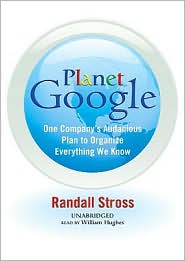Tech bits for the weekend of 12_28_08
 Sunday, December 28, 2008 at 4:00PM
Sunday, December 28, 2008 at 4:00PM Busy holiday and weekend, but there were still some techie stocking stuffers this week.
The first is an interesting blog post from Coding Horror: Hardware is Cheap, Programmers are Expensive. The article has some interesting data and graphs, and makes two loosely-related points
- The payback on great hardware for development teams is quicker than you might think
- “the fastest hardware in the world can’t save you from bad code”
Worth a read.
The second is a nice bit from TechCrunchIT on the increasing viability of agile development in a soft economy Will This Economy Finally Push the Toyota Way Into Software Development?
Rally Software gets a nice mention, and the old waterfall model has taken so many lumps it’s hard to believe that there is still debate about agile vs. waterfall.

The third bit is on web analytics, specifically a neat approach that ties Google Analytics to a Google docs spreadsheet as an approach to campaign tracking: No more shooting in the dark- track your marketing campaigns. I like this posting because it takes the wonderful (but kinda context-free) Google Analytics, and turns a cool tool into an interesting solution approach. You can find examples that take the idea further here: No Google Analytics API? No Problem! and here: Homebrew Google Analytics API.
Social Search Categories

This week’s final bit takes on Google, Facebook, and “social search” in The Future Of Social Search. Social (or any kind of search with context – social, geocoded, personal, etc.) search is an interesting idea — Google gives nice general search by comparing your search string with the whole web, but there are a lot of specific cases where it’s really true that less is more.
Coming next week: Predictions for 2009…




